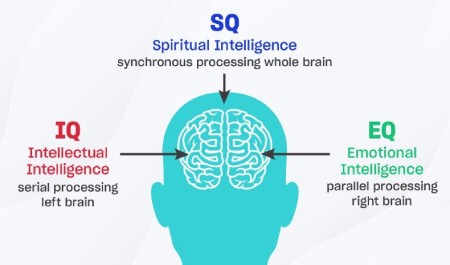The relationship between a baby and a mother is one of the most important and deepest relationships that humans experience throughout their lives. This bond starts from the moment of birth and plays a significant role in the emotional, social and cognitive growth and development of the child.
The importance of mother-child bond:
Security and stability
A mother’s arms are a safe haven for a baby that gives him a sense of security and stability. This feeling of security is essential for the development of a child’s self-esteem and self-confidence.
Emotional growth
Mother-child interactions provide the basis for the child’s emotional development. Through these interactions, the child learns to recognize, express and regulate his feelings.
Brain development
Research has shown that mother-child communication plays an important role in the development of the child’s brain. The brains of children who have enough care and affection develop more fully and they perform better in various fields.

Things that help strengthen the bond between mother and child:
– Skin-to-skin contact: Skin-to-skin contact immediately after birth and in the following months plays an important role in creating a bond between mother and child.
– Breastfeeding: Breastfeeding not only has nutritional benefits for the child, but also helps to strengthen the emotional bond between mother and child.
– Talking and caressing: talking to the baby, reading books to him and caressing him help him feel loved and safe.
Responding to the child’s needs: Paying attention to the child’s needs and responding to them quickly shows him that he is cared for.
– Playing with the baby: Playing with the baby is a fun way to strengthen the bond between mother and child.
Mother-child relationship challenges:
Postpartum depression: Postpartum depression can negatively affect the relationship between mother and child.
– Lack of sleep: Taking care of a baby can be very tiring and lack of sleep can affect the mother’s mood and her ability to communicate with the baby.
– Family problems: Family problems can increase stress in the mother and affect her relationship with the child.
What should be done if there is a problem in the relationship between mother and child?
If you are having problems with your relationship with your child, it is important to seek professional help. An expert can help you identify the root of the problem and find solutions.
Common challenges in mother-child relationship and solutions to overcome them:
Common challenges:
– Baby crying: crying is one of the baby’s communication ways. Sometimes it is difficult for the mother to interpret the cause of the baby’s crying, and this can cause frustration and anxiety in the mother.
– Sleep problems: Insomnia is very common in babies and young children and can become a big challenge for parents.
– Raising children: disagreements between parents about how to raise children can be a source of tension and conflict in the family.
– Behavioral problems: Children of different ages may face behavioral problems such as stubbornness, aggression or disobedience.

Solutions to overcome challenges:
– Patience and understanding: It is important to remember that babies and children are learning and growing. Your patience and understanding can help them cope with the challenges.
– Communication: Talk to your child and listen to him. This will help you better understand his needs and feelings.
– Getting help: If you are having trouble solving a problem with your child, seek help from professionals. An expert can provide you with solutions to manage challenges.
Father’s role in mother-child relationship:
The father also plays an important role in the growth and development of the child and can help strengthen the bond between mother and child. The father can share with the mother in taking care of the child, play with him and read to him. The presence of the father in the family gives the child a sense of security and stability and helps him to form his sexual identity correctly.
The mother-child relationship is a living and dynamic relationship that changes over time. With patience, understanding and support, you can strengthen this relationship and provide the ground for your child to grow and flourish.

Long-term impact of mother-child relationship
The relationship between mother and child is not only influential in childhood, but throughout a person’s life. This relationship can form self-confidence, self-esteem, communication skills and the ability to create intimate relationships in a person.
Positive effects:
Self-confidence: Children who receive enough love and support from their mothers usually have higher self-confidence. They believe that they deserve success and happiness and are not afraid to face challenges.
– Self-esteem: Self-esteem is the feeling of value and importance of a person. Children who are accepted and respected by their mothers tend to have higher self-esteem.
– Communication skills: the child’s first communication experiences with his mother are formed. Children who receive positive feedback from their mothers and are listened to tend to have better communication skills.
– The ability to create intimate relationships: the mother-child relationship is the primary model for creating intimate relationships in a person. Children who receive adequate love and support from their mothers are usually more successful in forming and maintaining close relationships with others.
Negative effects:
– Mental health problems: Children who have problems with their mother are at risk of developing mental health problems such as depression, anxiety and drug abuse.
– Behavioral problems: These children may also face behavioral problems such as aggression, stubbornness and disobedience.
– Problems in relationships: These children may have problems in creating and maintaining intimate relationships with others.
Your role as a mother:
– Show your love and support to your child.
– Listen to your child and value him.
– Talk to your child and teach him how to express his feelings.
– Be a good role model for your child.
– Get help from experts if needed.

Common questions about mother-child relationship
1. What creates the bond between mother and child?
The bond between mother and child starts from the moment of birth. This bond is formed through skin-to-skin contact, breastfeeding, talking to the baby, caressing him and responding to his needs.
2. What is the importance of mother and child bonding?
The bond between mother and child plays a significant role in the child’s emotional, social and cognitive growth and development. This bond gives the child a sense of security, stability and love and helps him cope with life’s challenges.
3. What factors can help strengthen the bond between mother and child?
Skin to skin contact
breastfeeding
Talking and caressing
Meeting the needs of the child
Play with the child
4. What challenges may exist in the mother-child relationship?
Postpartum Depression
lack of sleep
family issues
5. What should be done if there is a problem in the relationship between mother and child?
If you are having problems with your relationship with your child, it is important to seek professional help. An expert can help you identify the root of the problem and find solutions.
6. What is the father’s role in the mother-child relationship?
The father also plays an important role in the growth and development of the child and can help strengthen the bond between mother and child. The father can share with the mother in taking care of the child, play with him and read to him. The presence of the father in the family gives the child a sense of security and stability and helps him to form his sexual identity correctly.
7. What is the long-term effect of mother-child relationship?
The relationship between mother and child is influential not only in childhood, but throughout a person’s life. This relationship can form self-confidence, self-esteem, communication skills and the ability to create intimate relationships in a person.









